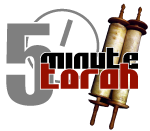
Nitzavim (“Standing”)
Deuteronomy 29:9 – 30:20
— and —
Vayeilech (“And He Went”)
Deuteronomy 31:1 – 31:30
“The secret things belong to the LORD our God, but the things revealed belong to us and to our children forever, that we may follow all the words of this Torah” (Deuteronomy 29:28)1
Searching for Nuggets of Life
The sages say that there are seventy interpretations of every word of Torah. There are two ways of understanding the above passage that I would like to address today. The first is the following.
“The secret things belong to the LORD our God”
No matter how hard we try, there are going to be some things in this life that we will never understand. We will never quite be able to wrap our minds around a particular concept, or understand some deep spiritual paradox. We must accept this fact. However, we must not allow our resolve to turn to apathy, as is the case with the vast majority of Christendom. Unfortunately, this concept has run rampant within the church, causing a lot of spiritual atrophy. We have been fed the lie that we cannot know, therefor seeking is merely a waste of time. This is simply not the case.
This leads us to the second portion of the verse, “but the things revealed belong to us and to our children forever, that we may follow all the words of this Torah.” Proverbs 25:2 says, “It is the glory of God to conceal a matter; to search out a matter is the glory of kings.” Although this seems to specifically address monarchical leaders in their responsibility, this is merely an allusion to the rewards that will follow our pursuit of wisdom. In regard to the pursuit of wisdom, Solomon tells us, “She will place on your head a garland of grace; She will present you with a crown of beauty.” But what are the rewards for our diligence?
“Ben Azzai would say: Run to pursue a minor mitzvah, and flee from a transgression. For a mitzvah2 brings another mitzvah, and a transgression brings another transgression. For the reward of a mitzvah is a mitzvah, and the reward of transgression is transgression.” (Avot 4:2)
The rewards are the fruit of ones actions. Wisdom will be the application of the pursuit. And if we yet think this is too difficult, we are reminded again in our text, “Now what I am commanding you today is not too difficult for you or beyond your reach. It is not up in heaven, so that you have to ask, ‘Who will ascend into heaven to get it and proclaim it to us so we may obey it?’ Nor is it beyond the sea, so that you have to ask’ “Who will cross the sea to get it and proclaim it to us so we may obey it?’ No, the word is very near you; it is in your mouth and in your heart so you may obey it,” (Deuteronomy 30:11-14). Don’t believe the lie that living according to Hashem’s standard is too difficult. He has made it very clear: It is not too difficult, but you must choose to obey.
“For this reason, since the day we heard about you, we have not stopped praying for you and asking God to fill you with the knowledge of his will through all spiritual wisdom and understanding. And we pray this in order that you may live a life worthy of the Lord and may please him in every way: bearing fruit in every good work, growing in the knowledge of God, being strengthened with all power according to his glorious might so that you may have great endurance and patience, and joyfully giving thanks to the Father, who has qualified you to share in the inheritance of the saints in the kingdom of light. For he has rescued us from the dominion of darkness and brought us into the kingdom of the Son he loves, in whom we have redemption, the forgiveness of sins,” (Colossians 1:9-14).
Footnotes
1 The Bible references may be slightly different in a non-Jewish published Bible. 2 A “mitzvah” is a commandment or a good deed.
Similar Posts:
- Jesus Loves Me
- C.S. Lewis & The Talmud
- Pirkei Avot – Chapter 1, Mishnah 2
- Emotional Week
- Gracious Giver of Wisdom
BTW, the 5 min torah addition has been good. Thanks for the extra work. Now we have to run to fulfill our mitzvah!